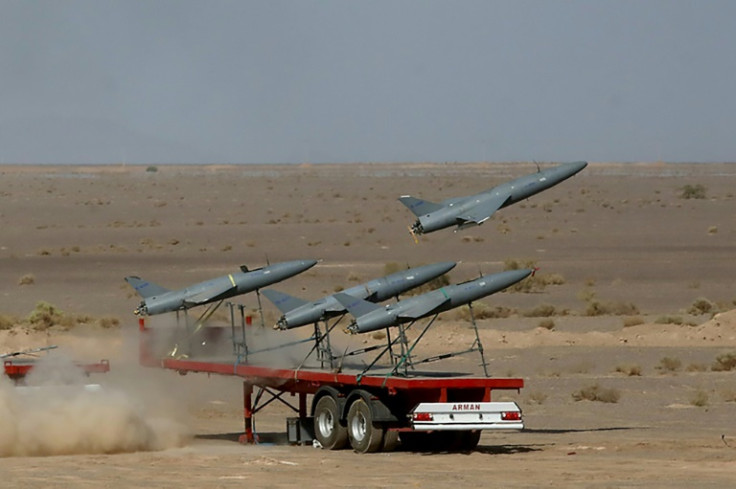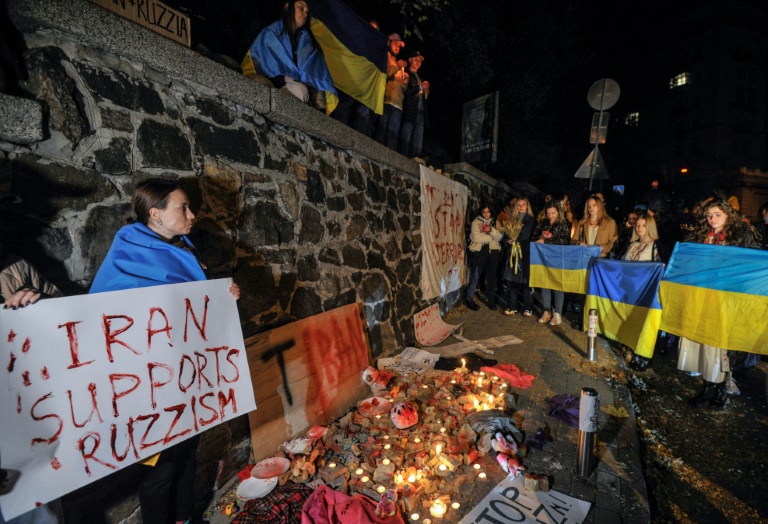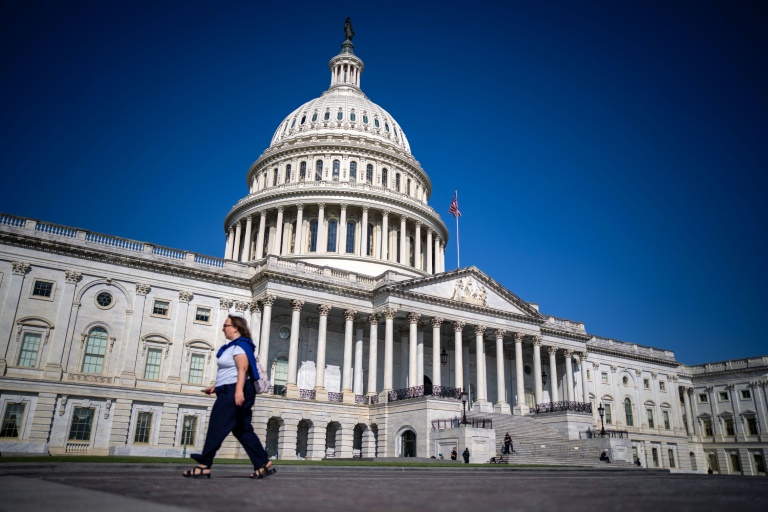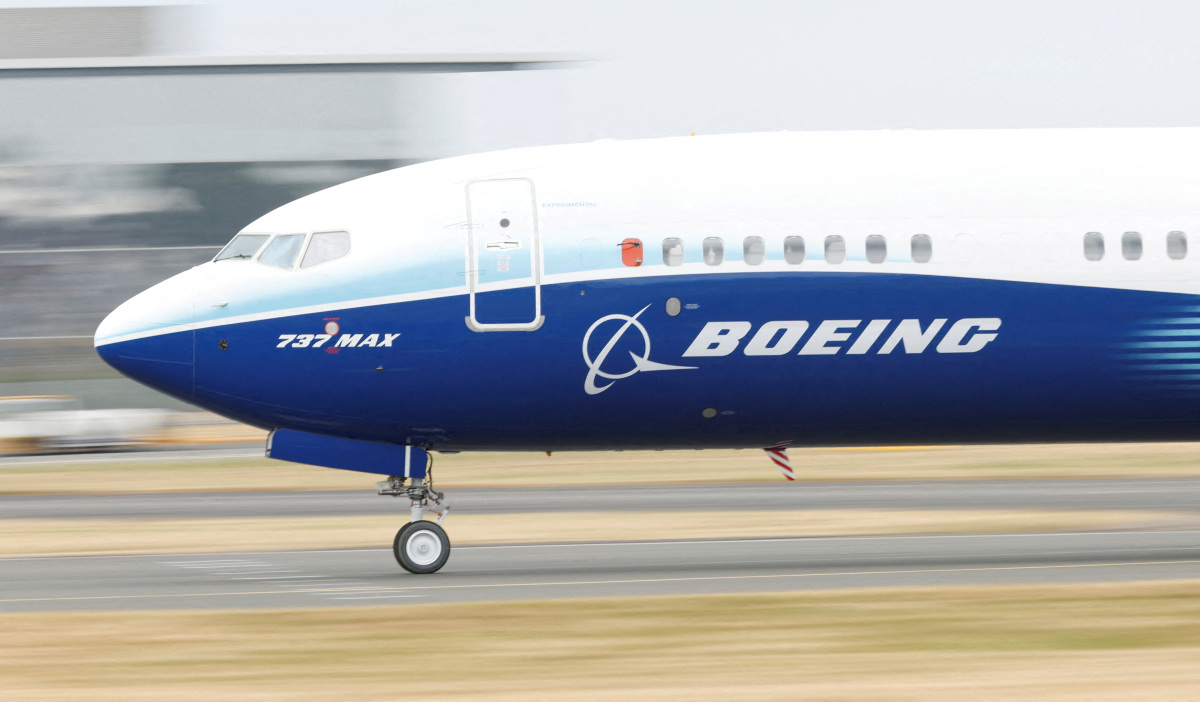Russia on Wednesday warned the United Nations not to probe alleged strikes by Iranian-made drones in Ukraine, joining Tehran in denying the weapons’ origin as the European Union prepared new sanctions.
The United States, France and Britain called a closed-door Security Council meeting on the alleged sale of drones to Russia, which they described as a violation of UN arms restrictions on Iran.
The European Union and United States both said they had evidence that Iran supplied the Shahed-136s, low-cost drones that explode on landing and are blamed for five deaths Monday in the capital Kyiv as well as for the destruction of civilian infrastructure.
Ukraine, which has moved to sever diplomatic relations with Tehran, says its military has shot down more than 220 Iranian drones in little more than a month and pictures have surfaced that appear to show an Iranian link.
But Russian diplomat Dmitry Polyanskiy denounced the “baseless accusations and conspiracy theories,” citing as evidence that the Russian word for geraniums was written on the drones, formally known as unmanned aerial vehicles.
“The UAVs used by the Russian army in Ukraine are manufactured in Russia,” Polyanskiy told reporters outside the Security Council.
“I would recommend that you do not underestimate the technological capabilities of the Russian drone industry.”
But he warned against any UN probe on the ground in Ukraine as part of enforcement of the existing sanctions on Iran.
“The team doesn’t have this mandate to conduct investigations; it is not part of the sanctions committee. So this would be absolutely unprofessional and political,” he said.
If the UN Secretariat or Secretary-General Antonio Guterres still go ahead, “we will have to reassess our collaboration with them, which is hardly in anyone’s interest,” Polyanskiy said.
Iran’s UN envoy, Amir Saeid Iravani, also rejected the “unfounded and unsubstantiated claims” on the drone transfers and said that Tehran, which has abstained in votes on the Ukraine war, wanted a “peaceful resolution” of the war.
The alleged arms transfers come as Iran is facing growing pressure over its crackdown on the biggest protests in years, which were sparked by the death of Mahsa Amini, a 22-year-old detained by the clerical state’s notorious “morality police.”
The European Union is expected to approve sanctions over the drones ahead of a summit Thursday in Brussels.
A list seen by AFP showed the 27-nation bloc planned sanctions on three senior military officials, including General Mohammad Hossein Bagheri, the chief of staff of Iran’s armed forces, as well as drone maker Shahed Aviation Industries, an aerospace company linked to the powerful Revolutionary Guards.
Nabila Massrali, spokeswoman for EU foreign policy chief Josep Borrell, said the bloc had “gathered our own evidence” and would prepare “a clear, swift and firm EU response.”
The United States has charged that the drones violated UN Security Council Resolution 2231 of 2015 that blessed a now moribund nuclear deal.
The resolution’s ban on Iran’s conventional arms sales expired in 2020, despite attempts by the then-US administration of Donald Trump.
The United States has not spelled out the purported violation but Resolution 2231 still bars through October 2023 any transfers that could benefit nuclear-capable ballistic missiles.
“Iran’s supply of these specific types of UAVs to Russia is a violation of UN Security Council Resolution 2231, and it is an issue for the UN Security Council,” State Department spokesman Vedant Patel said.
Iran’s crackdown on protesters has already led to new Western sanctions over human rights and put on the back burner efforts by US President Joe Biden to restore the 2015 nuclear deal, from which Trump pulled the United States.
Western officials have highlighted the Iranian drones as evidence that Russia, historically one of the world’s largest arms exporters, has seen its arsenal badly depleted from losses on the battlefield.
The United States has released intelligence saying that the Iranian drones have frequently malfunctioned and that Russia has also turned to North Korea, although China has reportedly rebuffed calls to send weapons.
Estonian Defense Minister Hanno Pevkur, on a visit to Washington, said Russia was relying on drones both because of low supplies and due to Ukraine’s success in the skies.
The Russians “understand that in air, they don’t have supremacy at the moment because there is air defense from the Ukrainian side. They’ve lost many airplanes already,” Pevkur told reporters.







